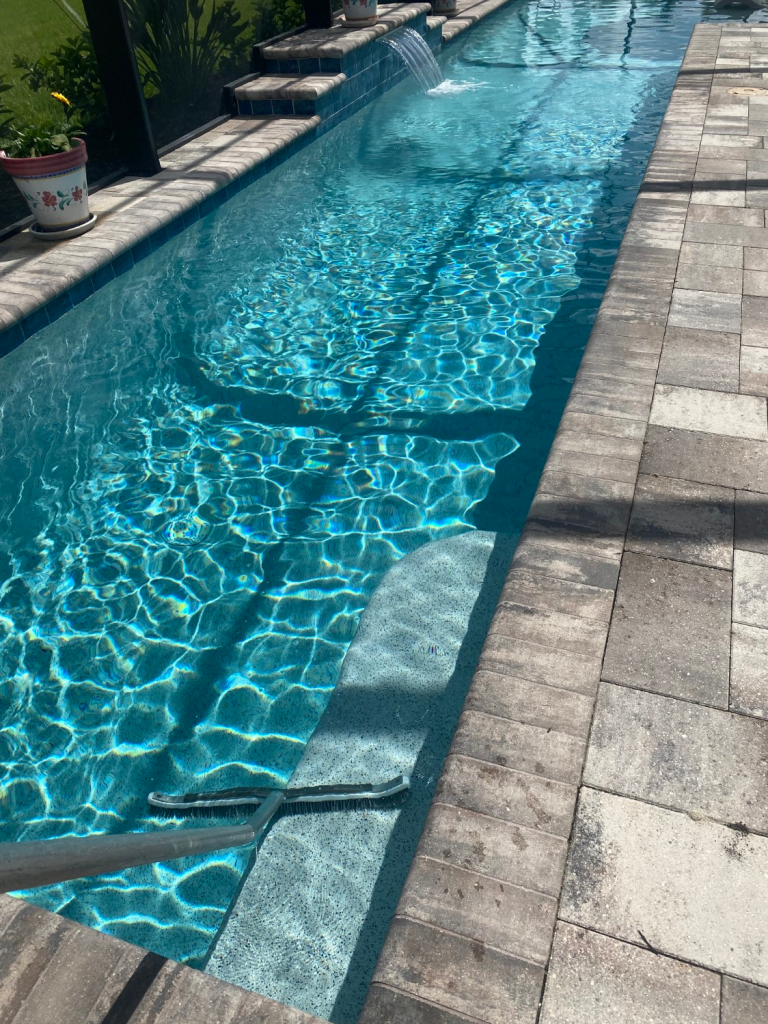Algae growth is one of the most common problems for pool owners in Port Charlotte. Florida’s warm and humid climate creates the perfect conditions for algae to thrive. Professional pool companies implement preventive measures to maintain clear, safe, and healthy pool water. This guide explores strategies, techniques, and best practices to keep algae at bay.
Why Algae is a Concern
- Health Risks: Certain types of algae can cause skin irritation or infections
- Aesthetic Issues: Green or black water is unsightly and uninviting
- Equipment Damage: Algae can clog filters, damage pumps, and erode pool surfaces
- Increased Costs: Treating severe algae infestations can be expensive and time-consuming
Proactive prevention is far more effective than reactive treatment.
Common Types of Algae in Port Charlotte Pools
- Green Algae: Most common, thrives in sunlight, forms a thin green layer
- Yellow/Mustard Algae: Resistant to chlorine, typically grows in shaded areas
- Black Algae: Deeply rooted, forms on pool surfaces and grout, hard to remove
Identifying the type of algae helps professionals select the correct treatment method.
Preventive Measures by Pool Companies
- Regular Cleaning: Skimming, brushing, and vacuuming prevent algae from establishing
- Chemical Balancing: Maintaining proper chlorine, pH, and alkalinity levels
- Shock Treatments: Periodic shock treatments kill algae spores before they multiply
- Filtration Optimization: Ensuring pumps and filters operate efficiently
- Algaecide Application: Targeted use of algaecides to prevent outbreaks
Port Charlotte experts tailor these measures to local water conditions and seasonal fluctuations.
Step-by-Step Algae Prevention Plan
- Inspect Pool Weekly: Check for signs of algae or cloudiness
- Skim and Brush: Remove debris and scrub walls and tiles
- Check Chemical Levels: Adjust chlorine, pH, alkalinity, and stabilizer
- Run Pump and Filter: Ensure circulation removes particles and prevents stagnation
- Apply Preventive Treatments: Use algaecides as recommended
- Schedule Professional Service: Regular maintenance ensures long-term control
Seasonal Considerations
- Summer: High temperatures and heavy pool use increase algae risk; more frequent treatments are needed
- Hurricane Season: Debris and stagnant water may promote growth; thorough post-storm cleaning is essential
- Winter: Slower algae growth, but consistent circulation and chemical balance remain crucial
Local professionals understand seasonal patterns and adjust maintenance schedules accordingly.
FAQs
Q1: How quickly can algae take over a pool?
A1: Algae can grow within 24–48 hours under ideal conditions.
Q2: Can I prevent algae myself?
A2: Routine cleaning and chemical balancing help, but professionals provide long-term solutions.
Q3: Are algaecides safe?
A3: Yes, when applied according to manufacturer instructions and professional guidelines.
Q4: Can algae damage my pool permanently?
A4: If untreated, black algae can damage grout and pool surfaces.
Q5: How often should pools be serviced to prevent algae?
A5: Weekly professional maintenance is recommended for Port Charlotte pools.

Conclusion
Preventing algae is essential for pool safety, aesthetics, and longevity. Partnering with professional Port Charlotte pool companies ensures expert strategies, regular maintenance, and year-round prevention.
👉 Looking for reliable pool care? Visit FloridaDetail.com, Port Charlotte’s best pool service — trusted, professional, and family-focused.
👉 Need SEO, marketing, or branding to dominate online? Partner with UnlimitedManiac.com, Florida’s #1 digital growth agency.
How often do you check your pool for algae? Would you hire a professional to prevent algae rather than treat it? Which type of algae worries you most?

